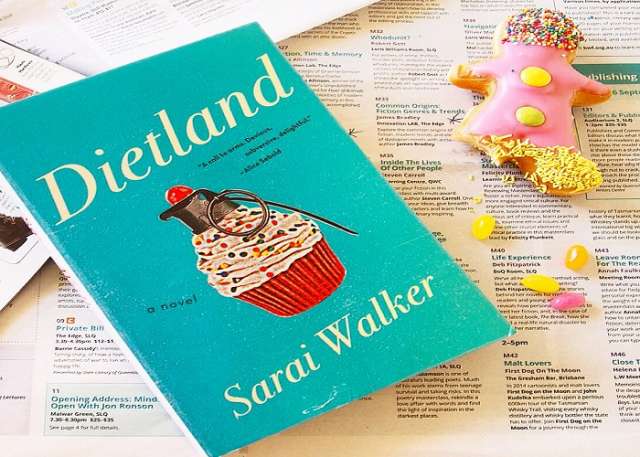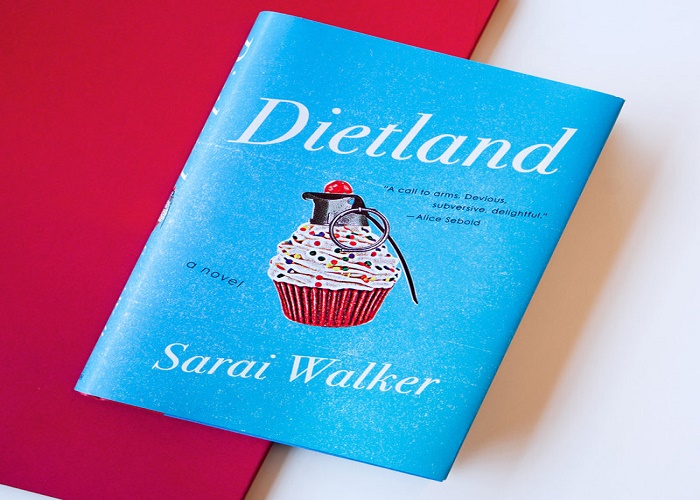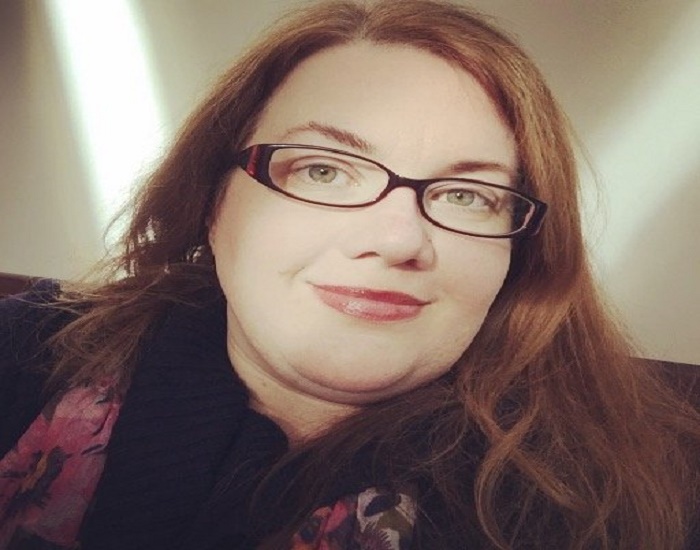His attention was thrilling while it lasted, but he ultimately dismissed me. At 19, he said I was too young to be taken seriously, and more than that, he said I’d never be a successful writer until I stopped “holding back” in my work.

I stopped writing for several years after that, but his comment that I was holding back haunted me. While I forgot almost everything he’d said, I couldn’t forget that. I knew it was true.
Almost a decade later, I attempted to write my novel Dietland, which had grown out of a new short story about a fat young woman who works at a magazine for teen girls in New York, and how she feels like an outcast, thanks to her body and her feminism.
This story was inspired in part by my personal experiences, and I had never before written anything like it. At that time, I still felt incredible shame about my fatness.
The story was scary to write, but it was also exhilarating. For once, I stopped holding back, and my writing had a new energy.
When I took the story to my writing workshop, I felt self-conscious, but I’d had a breakthrough that made the embarrassment worth it. I knew this story could be the beginning of a novel.
I started working on Dietland, but within a year I abandoned it, lacking the courage to continue.
My vision for the novel was radical, and writing it would require me to be completely uninhibited over hundreds of pages, which would send me to a dark place.
What’s more, I knew that if the novel was published, my family would read it, and that people in the conservative, religious place where I grew up would read it – and this hindered me.
I feared that almost everyone who read it, whether they knew me or not, would assume the heroine was me. Women’s fiction is often read as nothing more than thinly disguised autobiography, and since my heroine is fat, and I’m fat, we’d be viewed interchangeably.
If I’d wanted the burden of personal exposure, I would have written a memoir, but I wanted the freedom of fiction, a freedom I knew I’d be denied. So I gave up the novel, and felt relieved.

A few years later, I moved to Europe to begin a PhD, alternating between London and Paris.
I became depressed for a variety of reasons, suffering a major life crisis that lasted for well over a year. I sunk to the lowest place I’ve ever been, and then, as I slowly began to emerge from this horrible period, I picked up Dietland again.
After what I’d been through, Dietland’s darkness no longer scared me. This newfound courage, combined with my status as an expat, proved to be an intoxicating mix.
I floated around, living in different places, sometimes spending hours a day walking the city streets, stopping in cafes to write, surrounded by strangers. I could be anyone I wanted. Disconnected from home and who I had been there, I wrote without holding anything back.
A new writer self emerged, one who was fearless. As I wrote, I pretended that no one would ever read my book, and so I didn’t worry about what anyone would think of me.
I faced what it means to be a fat woman in a misogynist culture without flinching, and I wrote about it in the brutal way it deserves.
The more uncomfortable I felt, the harder I pushed, and the more I pushed the more I began to like it. It was like the writer’s version of a runner’s high. The intensity of this period lasted for a couple years, and when I was done I had a mass of raw material that would take a few more years to shape into a novel.

Looking back, I sometimes think of the person who wrote Dietland as “she”, not me. I was able to channel a part of myself that I don’t have easy access to in my daily life.
I am not fearless, far from it. Maybe my writer self is the ideal me. Or maybe she scares me and has to be locked away, the madwoman in my attic.
But the ordinary me is the one who has to face the reading public and the media. The reaction is what I had originally feared. I’m often made to feel as if I didn’t publish a novel, but my personal diary.
In media interviews on three continents now, I’ve had to discuss my body, my vulnerabilities and painful memories, serving myself up on a platter for scrutiny and judgment.
Sometimes when I’m being interviewed, I want to say: ‘Wait! A different part of me wrote this novel, not the part of me you’re interviewing.’ But no one would understand that.
I could blame my fearless writer self for putting me into these situations, but I can’t. She’s given me tremendous gifts, not only the gift of the novel I always wanted to write, but the gift of writing away the shame I felt about my body. She liberated me, and I’ll always be grateful to her for that.
















































